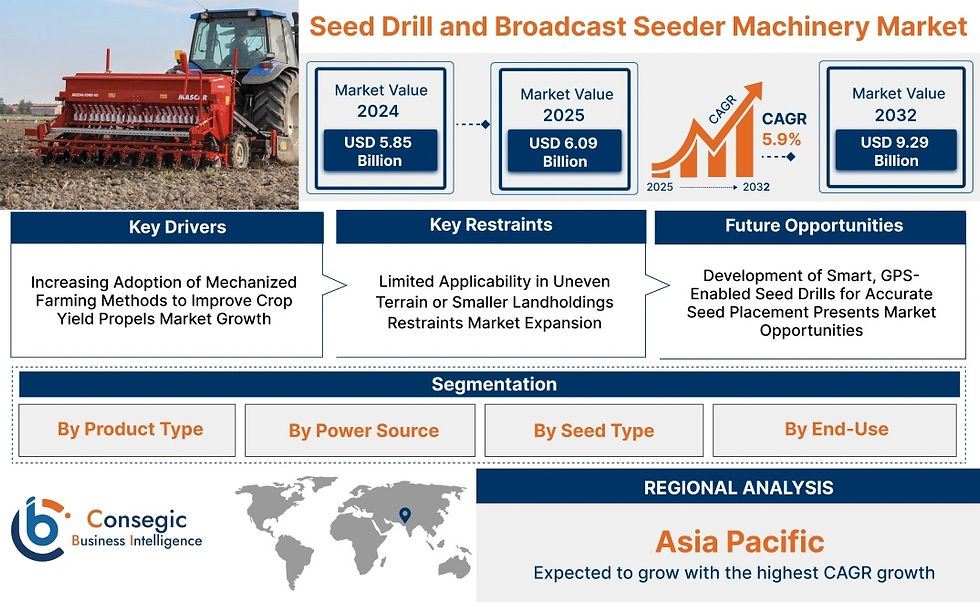Deep Dive into the Acute Hospital Care Market: Trends and Forecasts
- Anurag ConsengicBusinessIntelligence
- Nov 21, 2024
- 3 min read
Acute Hospital Care Market Overview
Acute hospital care refers to the short-term care provided to patients with severe or critical illnesses or injuries. These hospitals offer specialized medical services, advanced diagnostic equipment, and emergency care. The acute hospital care market is a significant segment of the global healthcare industry, driven by factors such as aging populations, increasing prevalence of chronic diseases, and rising healthcare expenditure.
Acute Hospital Care Market Drivers
Several factors are driving the growth of the acute hospital care market:
Aging Population: As populations age, the demand for acute care services increases due to age-related health issues.
Rising Prevalence of Chronic Diseases: The increasing prevalence of chronic diseases, such as diabetes, heart disease, and cancer, necessitates specialized acute care.
Advancements in Medical Technology: Technological advancements in medical devices and diagnostic tools are enabling more effective and efficient acute care.
Increasing Healthcare Expenditure: Growing healthcare expenditure allows for investments in hospital infrastructure, equipment, and personnel.
Government Initiatives: Government initiatives aimed at improving healthcare access and quality are driving the expansion of acute hospital care facilities.
Acute Hospital Care Market Restraints
Certain factors may limit the growth of the acute hospital care market:
Rising Healthcare Costs: High costs associated with acute care can be a significant burden for patients and healthcare systems.
Healthcare Workforce Shortages: A shortage of healthcare professionals, particularly nurses and physicians, can impact the quality and accessibility of acute care.
Regulatory Challenges: Strict regulatory requirements can increase the operational costs and complexities of acute care facilities.
Economic Downturns: Economic downturns can lead to reduced healthcare spending, impacting the demand for acute care services.
Acute Hospital Care Market Opportunities
The acute hospital care market presents several opportunities for growth:
Telehealth and Remote Monitoring: Telehealth can improve access to acute care, especially in rural and underserved areas.
Value-Based Care: Adopting value-based care models can incentivize quality care and cost-efficiency.
Digital Health Solutions: Integrating digital health technologies can enhance patient care, streamline operations, and improve outcomes.
Specialized Care Centers: Developing specialized care centers for specific conditions, such as cardiac care or oncology, can attract patients and generate revenue.
Acute Hospital Care Market Key Players
HCA Healthcare, Inc. (United States), Tenet Healthcare Corporation (United States), Universal Health services, Inc (United States), Ramsay Health Care (Australia), Cleveland Clinic (United States), Community Health Systems, Inc. (United States), Ascension Health (United States), Mayo Clinic (United States), Fresenius Medical Care (Germany), IHH Healthcare (Malaysia)
Acute Hospital Care Market Segmentation
By Service Type: Emergency care, Surgical care, Critical care, Neonatal intensive care, Others
By Medical Condition: Trauma & injury, Cardiovascular conditions, Neurological conditions, Oncology, Others
By Facility Type: General hospital, Specialty hospital, Govt./Public hospital, Private hospital, Others
By End-User: Inpatient, Outpatient, Healthcare professional
Acute Hospital Care Market Regional Analysis
Asia-Pacific, Europe, North America, Latin America, Middle East & Africa
Acute Hospital Care Market Recent Developments
Recent developments in the acute hospital care market include:
Increased focus on patient experience: Hospitals are investing in patient-centered care, including amenities, personalized services, and digital tools.
Advancements in medical technology: Innovations in medical devices and diagnostic tools are improving patient outcomes and reducing hospital stays.
Emphasis on preventive care and population health management: Hospitals are shifting towards preventive care and population health management strategies to reduce the burden of chronic diseases.
Mergers and acquisitions: Consolidation among healthcare providers is reshaping the industry landscape.
Contact us:
Contact no: (US) (505) 715-4344
Other Related Reports:



Comments